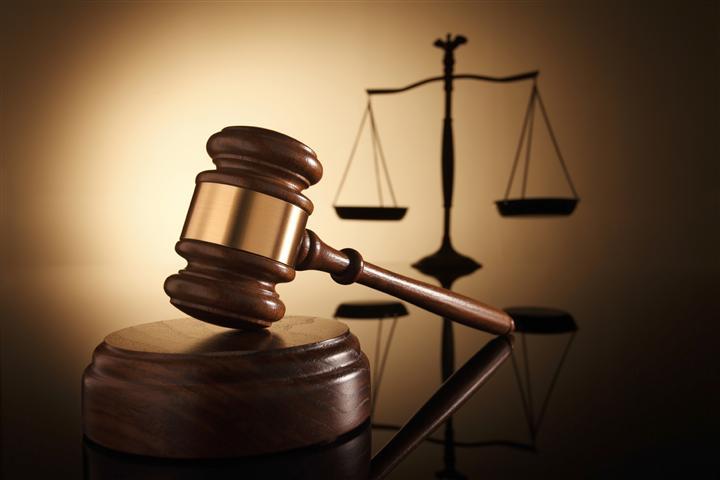Attorneys use multiple approaches to litigation and trial work, especially when it comes to criminal defense. Many attorneys use every attack they can find to chip away at a case.
Also, clients sometimes think that their attorney isn’t doing enough for them because they aren’t pursuing certain or multiple arguments. “If you don’t argue every point, then you’re not adequately representing me,” they might say.
This strategy is usually referred to as the “throw everything against the wall and see what sticks” defense. In some cases, this is a good approach. However, it is not always the best or wisest defense.
Before you or your attorney begins to argue your case in court, consider streamlining your case with a more focused approach. Narrow down your argument to one main issue that is powerful and easy for a judge or jury to understand. Above all, remember that credibility matters.
As many attorneys learned during law school, just because you can argue every defense, issue, or objection, doesn’t mean you should. Although judges and juries are supposed to consider only the evidence presented, the reality is that they tend to view the client as an extension of the attorney and his or her behavior.
If the attorney is rude, loud, overly hyper, or unkempt, jurors will react negatively to that attorney’s actions and any argument they make. Don’t lose a jury by trying to make a show for your client.
Also, be careful with alternative defenses.
One of my favorite courtroom dramas of all time is the musical and movie “Chicago”. The defense attorney, Billy Flynn, spins the courtroom around in a circus of lights, sounds, and imagination with his “razzle dazzle.” His murder client, the famous Velma Kelly, presents her alternative defense with the great line, “I didn’t do it, but if I’d done it, how could you tell me that I was wrong?” This is the classic idea of, I didn’t do the crime, but if I did the crime, it was justified – it was self-defense.
This defense sounds great, but it is often hard for a jury to believe. It is hard to straddle the fence. Juries think you are trying to pull one over on them, and they feel better about their own powers of discernment. You either did or you didn’t do it. Choose one, because it definitely can’t be both.
Sometimes less is more
It is easy to get sidetracked by all of the details in a case. There can be so many things to argue, so many points to question, and many things that just make you go “hmm.” But don’t get so fixated on all of the details of a case that you lose sight of the big picture. Don’t lose that forest for the trees. Attorneys need to know what issues will make or break a case. If there is an issue that you can attack, but it is not the crucial issue, consider leaving it alone.
Let me give you an example.
I was defending a genuine, believable client on a rape charge years ago. After a night of heavy drinking, a woman accused two men of raping her. One of the men was my client. The state had my client’s DNA, and it really was his DNA. The main issue in the case, though, was whether the contact was consensual.
Many defense attorneys would have fought the DNA evidence just in case they lost on the issue of consent. But I realized in this case, that if we fought the DNA, we would lose credibility with the jury. That’s his DNA, they would think, so how can you tell me it’s not?
Especially in this time of crime shows like CSI and NCIS, juries believe scientific evidence. We had a lot to lose by attacking the piece of evidence the jury would believe the most.
So we targeted the central issue and chose not to question the DNA. In our opening statement, I admitted to the jury that it was my client’s DNA, and we weren’t disputing it. We confessed to his actions, as if to a priest, that what he did was stupid and immoral, but it wasn’t a crime.
In the end, the prosecution lost credibility with the jury instead of us. After we told the jury it was my client’s DNA, the prosecutor still had the DNA expert testify. After 45 minutes of testimony about something the jury already knew, they were not thrilled.
Instead of questioning everything, I questioned the one thing that mattered the most. This approach doesn’t always work, but in this case, it did. The jury found my client not guilty.
So before you fight for all you’re worth, make sure you are fighting smart. Fix your sight on the target and narrow down your arguments. When it comes to trial advocacy, remember that your credibility matters, and sometimes less is more.
Anderson & Quinn, LLC is a law firm based in Rockville, Maryland, providing individuals, businesses, corporations, and healthcare institutions with the legal and litigation support they need. Ms. Tehrani is an associate at Anderson & Quinn, LLC, 25 Wood Lane, Rockville, MD, 20850. Tel: 301-762-3303. Email: vtehrani@andersonquinn.com.


If I need legal advice, I would surely use Anderson & Quinn.